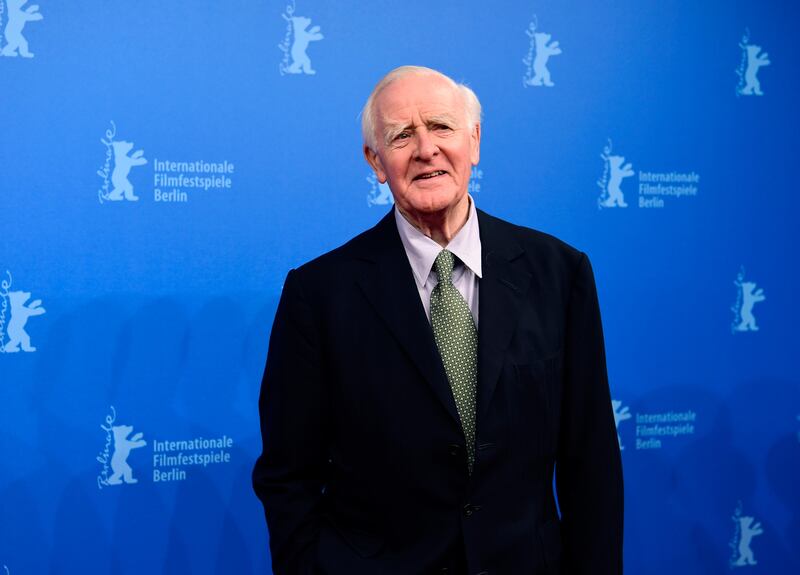There are few things that set London's literary scene alight like one of its big guns coming in from the cold. This week, the return of John Le Carré with his 25th novel, A Legacy of Spies, published today by Penguin with the author reading from his book at a London event that will be broadcast live to cinemas across the country, has provoked a veritable frenzy in the excitable industry.
There is even more interest in this return, because Le Carré – whose real name is David Cornwell – appears to be resurrecting one of his most famous creations, the spymaster George Smiley in his latest effort. And he’s using his most famous creation, who last appeared in The Secret Pilgrim in 1990, to attack some of the events of current times that the 85-year-old Le Carré is especially peeved by.
"I wrote [A Legacy Of Spies] in a bit of a frenzy through Trump and Brexit. I despise the whole Brexit operation, as Smiley does. One government after another blamed Europe for its own failures because they never invested in the concept of a united Europe," Le Carré told The Sunday Times.
Read more: A Legacy of Spies: Le Carré’s George Smiley is back
The story of Legacy is told through Peter Guillam, who appeared as Smiley's deputy in previous books, and who has been recalled to the service by MI6 to answer for the deaths of two characters from The Spy Who Came In From The Cold, one of Le Carré's earliest novels that ends in a murky, moral conundrum.
Guillam asks his former boss what the whole driving force behind their espionage had ever been. Smiley tells him that it had all been about the continent, rather than the self-isolating island nation state.
“I think his whole genesis in life — his private dream, as he now expresses it — is the salvation of Europe. That was, for him, the battlefront of the Cold War — for him, that was where the soul of Europe was being fought for. So, when he looks back on it all — or I do, if you like — he sees futility.”
Over the 55 years that he has written, Le Carré has moved to a critical position on the activities of the secret state; from working for MI5 and MI6 between 1958 and 1964, he has become an ardent critic of British governments, seeing their willingness to fall in to American-led wars and enterprises as a key problem.
“We were absolutely broke [after World War Two]. The Americans made us pay for every bullet and every bad boat they sent us. At the same time as we were dismantling Germany, they were rebuilding it. So all these people fantasising that we won the war single-handed — it’s an absolute mystery to me. By the end of the war, we were already very minor players in the victory.”
He has expanded beyond the traditional arenas of espionage in novels too, to take in new 'enemies'; in The Constant Gardener, written in 2001, he identified the potential dangers of 'Big Pharma' in the developing world.
Le Carré is notoriously unconvinced by modern political leaders, having told the playwright David Hare that “I thought [Tony] Blair was lying when he denied he was a socialist. The worst thing I can say about him is that he was telling the truth.”
Talking to Bryan Appleyard in The Sunday Times, he expanded on the failings of the modern political class. "It's extraordinary to realise that Clement Attlee commanded a regiment in the war. Even [Edward] Heath had experience of the war. It isn't the war that's the defining factor, it was having to work with men and women of all classes. They were blooded, those people. They knew whereof they spoke. What we now have is the wrong set.
“Surely the definition of a decent society is: one, how it chooses its elite; and, two, how it looks after its losers. Now we choose our elite horribly badly and, as long as private education commands the scene, don’t talk to me about levelling the playing field — the social contract is bust in this country.”
With his latest novel set to dive into the major issues that his home nation is struggling with, Le Carré will remain a surprisingly engaging voice in the country’s attempts to find a role for itself.






